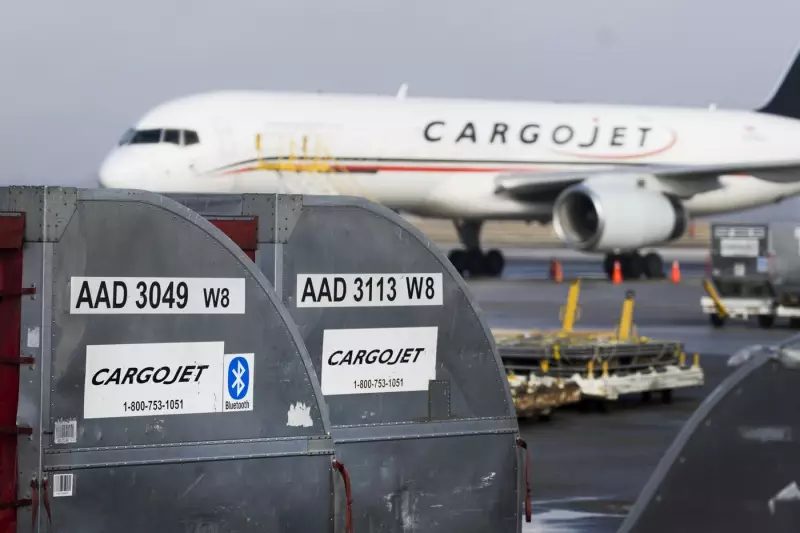
The ripple effects of international trade disputes have reached Canadian skies, as leading cargo carrier CargoJet reports a dramatic profit decline directly linked to ongoing tariff battles between economic superpowers.
Financial Turbulence Hits Air Cargo Giant
CargoJet, a cornerstone of Canada's logistics infrastructure, is experiencing significant financial pressure as global trade patterns shift unexpectedly. The company's latest earnings report reveals a substantial drop in profitability, sending shockwaves through the transportation sector.
The primary culprit? Escalating trade tensions between the United States and China that have disrupted established shipping routes and created uncertainty across international supply chains.
Trade War Fallout Reshapes Global Shipping
The imposition of tariffs by the Trump administration has triggered a chain reaction affecting businesses far beyond American borders. For CargoJet, the impact manifests in several critical areas:
- Reduced shipping volumes as companies adjust to new trade realities
- Increased operational costs due to route optimization challenges
- Market volatility affecting long-term contract negotiations
- Shifting customer demand patterns across international borders
These factors have converged to create a perfect storm for the cargo specialist, demonstrating how interconnected the global economy remains despite political divisions.
Canadian Economy Feels the Impact
As a vital component of Canada's trade infrastructure, CargoJet's financial challenges could signal broader economic headwinds. The company plays a crucial role in connecting Canadian businesses to international markets, particularly for time-sensitive shipments across North America.
The profit decline underscores the vulnerability of trade-dependent economies to geopolitical disputes, even when those disputes originate beyond national borders.
Industry Adaptation in Uncertain Times
Despite the current challenges, industry analysts suggest that cargo carriers like CargoJet may need to develop new strategies to navigate the evolving trade landscape. Potential adaptations include:
- Diversifying service offerings to reduce reliance on volatile trade routes
- Strengthening domestic and intra-regional shipping capabilities
- Investing in technology to improve operational efficiency
- Developing flexible pricing models to accommodate fluctuating demand
The coming months will prove critical for CargoJet and similar companies as they adjust to what many experts predict will be a prolonged period of trade uncertainty.
As global economic powers continue their tariff standoff, the collateral damage extends far beyond government balance sheets, directly impacting businesses and workers in interconnected economies like Canada's.






